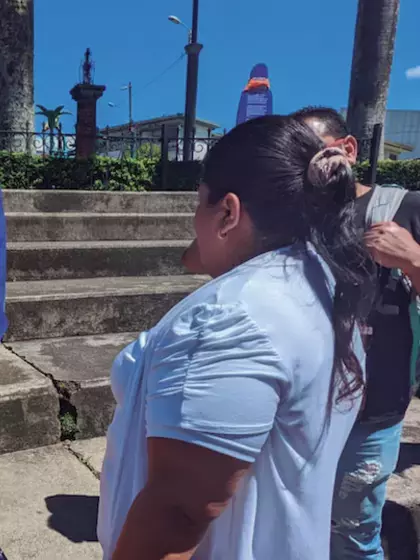Developments and challenges in citizen security in Central America and the Dominican Republic in 2023

At first glance, 2023 comes across as a good year for citizen security in Central America and the Dominican Republic. Or so it would appear from the 8.2 per cent drop in the homicide rate, that came to 17.3 per 100,000 population, the lowest in recent decades.
Even so, 20 people lose their lives to violence every day. Clearly, much remains to be done.
These are the two main conclusions in the "Preliminary Analysis of the State of the Violence and Citizen Security, January to December 2023", prepared with data sourced from multiple government agencies by UNDP-InfoSegura regional project, in partnership with USAID.
With analysis results in hand, one can hardly contest the fact that the region remains the most violent worldwide: Latin America accounts for 33 per cent of homicides, yet only eight per cent of the world's population. The causes vary: rise in organized crime like drug trafficking and the proliferation of gangs; mounting structural reasons, such as low economic growth, lack of employment access, climate crisis or gender inequality. Certainly, this all further deteriorated after the COVID-19 pandemic.
To combat this problem, citizen security has to be understood from a territorial perspective, recognizing the disparities not only between countries, but also in each of them, and the need for country-specific strategies
Digging into the data reveals that rates of violence are chronically high in certain places. In general, a decrease in the number of victims of homicidal violence was observed in approximately two thirds (66.0%) of the departments, provinces or districts, while the rest experienced increases (32.1%) or remained the same (1.9%). Homicide rates tend upward in densely populated areas, such as capital cities or areas of concentrated economic activity, and near the borders and coastal regions. The latter is particularly so in Costa Rica and Honduras.
This is the customary operating ground for organized criminal groups, whose presence has surged in countries like Costa Rica. In its 2019 study of the territorial dynamics in homicide and related crimes, the UNDP InfoSegura Regional Project notes that homicide can be tied to the presence of organized crime on one hand, and extortion to the presence of street gangs on the other.
The InfoSegura Regional Project has played a fundamental role for some 10 years in reinforcing citizen security. It helped design and implement a number of instruments, from laws to national and local strategies, consolidating technical and analytical capacities in countries throughout the region. Its approach to creating and fortifying data ecosystems, institutional inter-operability and the use of innovative tools, reflects its ongoing commitment to the reduction of violence and enhancing the quality of people’s lives.
In everything it does, from digitalizing criminal evidence in Belize to developing an open data system in Honduras, InfoSegura—in partnership with USAID—demonstrates its capacity for catalysing effective responses. The introduction of SARA the artificial intelligence based digital assistant, is an outstanding innovation in preventing violence against women and girls.
InfoSegura is making headway in the complex citizen security landscape in Central America and the Dominican Republic, with significant progress but facing persistent challenges. Time-sensitive and strategic information, coupled with long-term political resolve, lays the groundwork for implementing solutions through which the lives of citizens in the region will be positively transformed.





